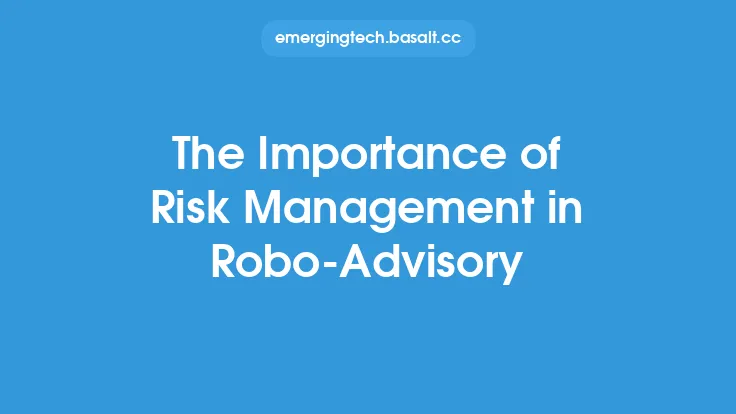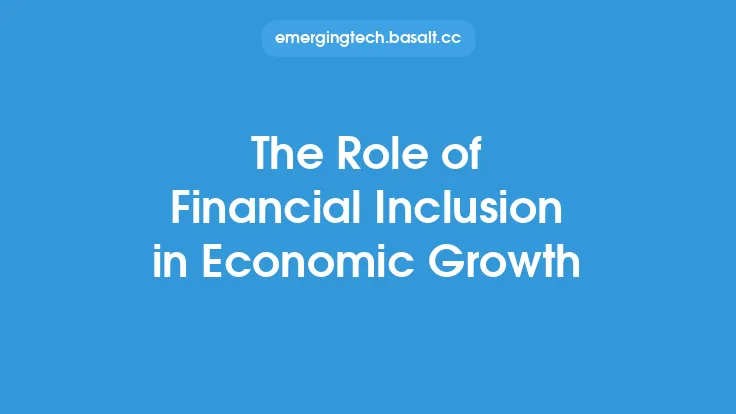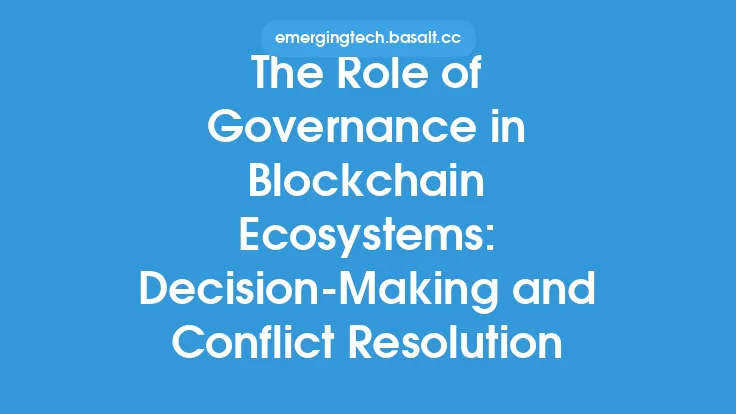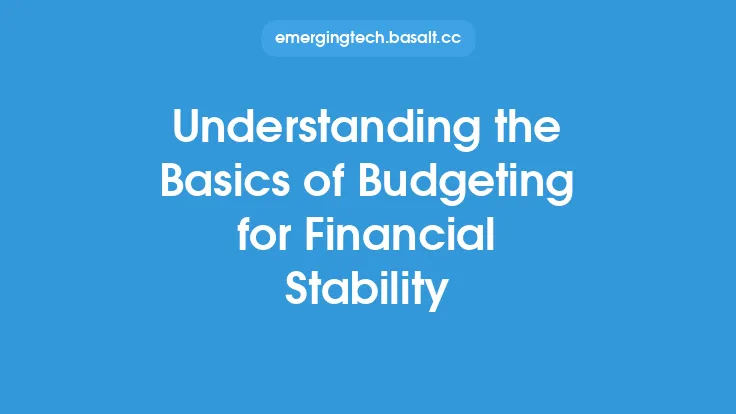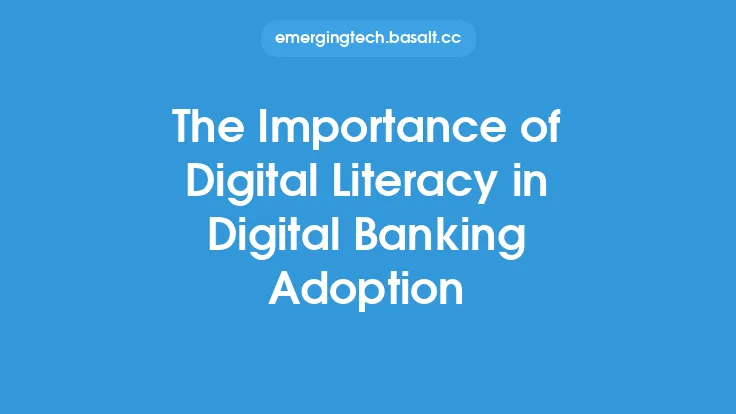Financial literacy is a crucial aspect of personal finance management, as it enables individuals to make informed decisions about their financial resources, navigate complex financial systems, and achieve long-term financial goals. In today's fast-paced and increasingly complex financial landscape, having a solid understanding of financial concepts, tools, and strategies is essential for building a secure financial future. Financial literacy encompasses a broad range of topics, including budgeting, saving, investing, and managing debt, as well as understanding financial markets, instruments, and institutions.
Introduction to Financial Literacy
Financial literacy is the foundation upon which all other personal finance management skills are built. It involves having a clear understanding of financial concepts, such as compound interest, risk management, and diversification, as well as being able to apply this knowledge in a practical way. Financially literate individuals are able to navigate the financial system with confidence, making informed decisions about their financial resources and avoiding common pitfalls, such as excessive debt and poor investment choices. By developing a strong foundation in financial literacy, individuals can set themselves up for long-term financial success and achieve their goals, whether that be saving for retirement, paying for a child's education, or simply building wealth over time.
The Benefits of Financial Literacy
The benefits of financial literacy are numerous and well-documented. Financially literate individuals are more likely to have a higher income, greater wealth, and better overall financial well-being. They are also more likely to engage in positive financial behaviors, such as saving and investing, and less likely to experience financial stress and anxiety. Furthermore, financial literacy has been shown to have a positive impact on mental and physical health, as individuals who are in control of their finances tend to experience lower levels of stress and anxiety. By developing a strong foundation in financial literacy, individuals can take control of their financial lives, make informed decisions, and achieve their long-term goals.
Key Components of Financial Literacy
Financial literacy encompasses a broad range of topics, including budgeting, saving, investing, and managing debt. Some of the key components of financial literacy include:
- Understanding financial markets and instruments, such as stocks, bonds, and mutual funds
- Knowing how to create and manage a budget, including tracking income and expenses
- Understanding the importance of saving and investing, including the power of compound interest
- Being able to manage debt effectively, including understanding credit scores and credit reports
- Understanding the concept of risk management, including diversification and hedging
- Knowing how to navigate the financial system, including working with financial institutions and advisors
Developing Financial Literacy
Developing financial literacy requires a combination of education, experience, and practice. Some ways to develop financial literacy include:
- Taking online courses or attending financial education workshops
- Reading books and articles on personal finance and investing
- Working with a financial advisor or planner
- Participating in online forums and communities, such as Reddit's r/personalfinance
- Using online tools and resources, such as budgeting apps and investment trackers
- Seeking out mentorship from experienced investors or financial professionals
Overcoming Barriers to Financial Literacy
Despite the importance of financial literacy, many individuals face barriers to developing this critical skill. Some common barriers to financial literacy include:
- Lack of access to financial education and resources
- Limited financial experience and knowledge
- Cultural and linguistic barriers
- Limited financial resources, including income and wealth
- Lack of motivation and engagement
- Fear and anxiety around financial topics
To overcome these barriers, it is essential to provide accessible and inclusive financial education and resources, as well as to promote a culture of financial literacy and empowerment.
The Role of Technology in Financial Literacy
Technology has the potential to play a significant role in promoting financial literacy, particularly among underserved and under-resourced populations. Some ways that technology can support financial literacy include:
- Online financial education platforms and courses
- Mobile apps and tools for budgeting, saving, and investing
- Virtual financial advisors and planners
- Online communities and forums for financial discussion and support
- Access to financial data and analytics, including credit scores and credit reports
By leveraging technology, individuals can access financial education and resources from anywhere, at any time, and develop the skills and knowledge they need to achieve their long-term financial goals.
Conclusion
Financial literacy is a critical component of personal finance management, enabling individuals to make informed decisions about their financial resources and achieve their long-term goals. By developing a strong foundation in financial literacy, individuals can take control of their financial lives, navigate complex financial systems, and build a secure financial future. Whether through education, experience, or practice, developing financial literacy is essential for achieving financial success and well-being. As the financial landscape continues to evolve and become increasingly complex, it is more important than ever to prioritize financial literacy and provide accessible and inclusive financial education and resources to all.
